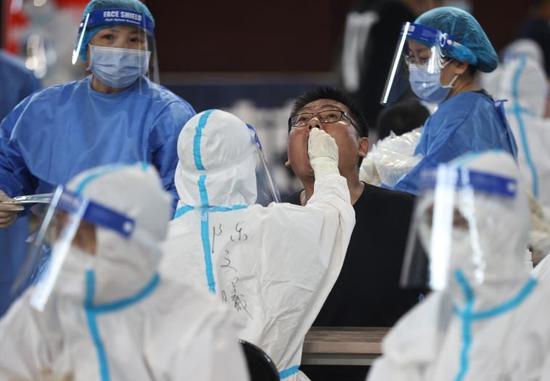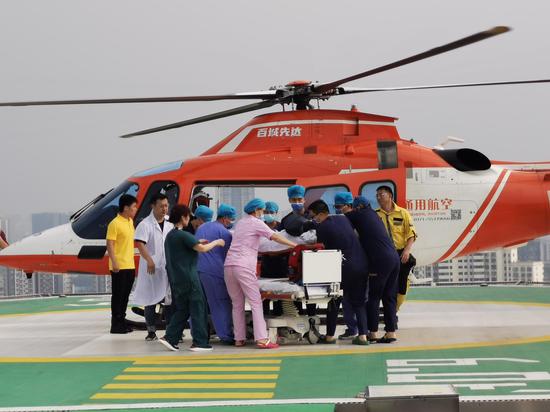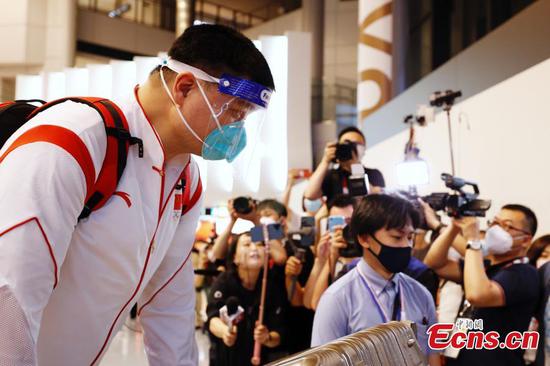COVID-19 cases rose faster in U.S. San Francisco in the past week than in the Bay Area and the state of California, according to the data of California Data Coalition by Thursday.
It was a rare occurrence for the city, which has had among the lowest virus rates in major U.S. metropolitan areas throughout the pandemic, according to a report by the San Francisco Chronicle on Friday.
The total number of new cases recorded over the past seven days in San Francisco was up 81.6 percent from the previous seven-day period, according to the California Data Coalition.
New cases in California over the past seven days were up 71 percent from the previous period, and across the Bay Area, that number was 61 percent.
As of Thursday, San Francisco's seven-day average of new case rate was 13 per 100,000 people, while the California seven-day average case rate was 13.7 and the Bay Area's was 12.5.
San Francisco is also seeing higher "breakthrough" case rates among vaccinated people than California. In San Francisco, there are 5.8 cases per 100,000 vaccinated residents and 15 cases per 100,000 unvaccinated, according to county officials.
These rates are both higher than the state, which reported 2 cases per 100,000 vaccinated residents and 13 for unvaccinated.
The San Francisco Public Health Department said in a statement that the city has tested more people than many other places in California, which could be a factor in its higher case rate.
"As a city, we are prioritizing testing in our hardest-hit areas to detect disease. As the second densest city in the country, we know viruses that are highly transmissible will spread quicker within the community," the statement said.
More than a month after the state and the city reopened, the delta variant is spreading rapidly among the unvaccinated, experts said.
In San Francisco, 69 percent of residents are fully vaccinated. In California, the number is 52.3 percent, according to Centers for Disease Control and Prevention data.
"What the last month has demonstrated is that even three-quarters of a population vaccinated in the face of a virus that's twice as infectious is not enough to prevent significant amounts of spread," Robert Wachter, chair of the UCSF Department of Medicine, was quoted as saying in the report by the San Francisco Chronicle.

















































